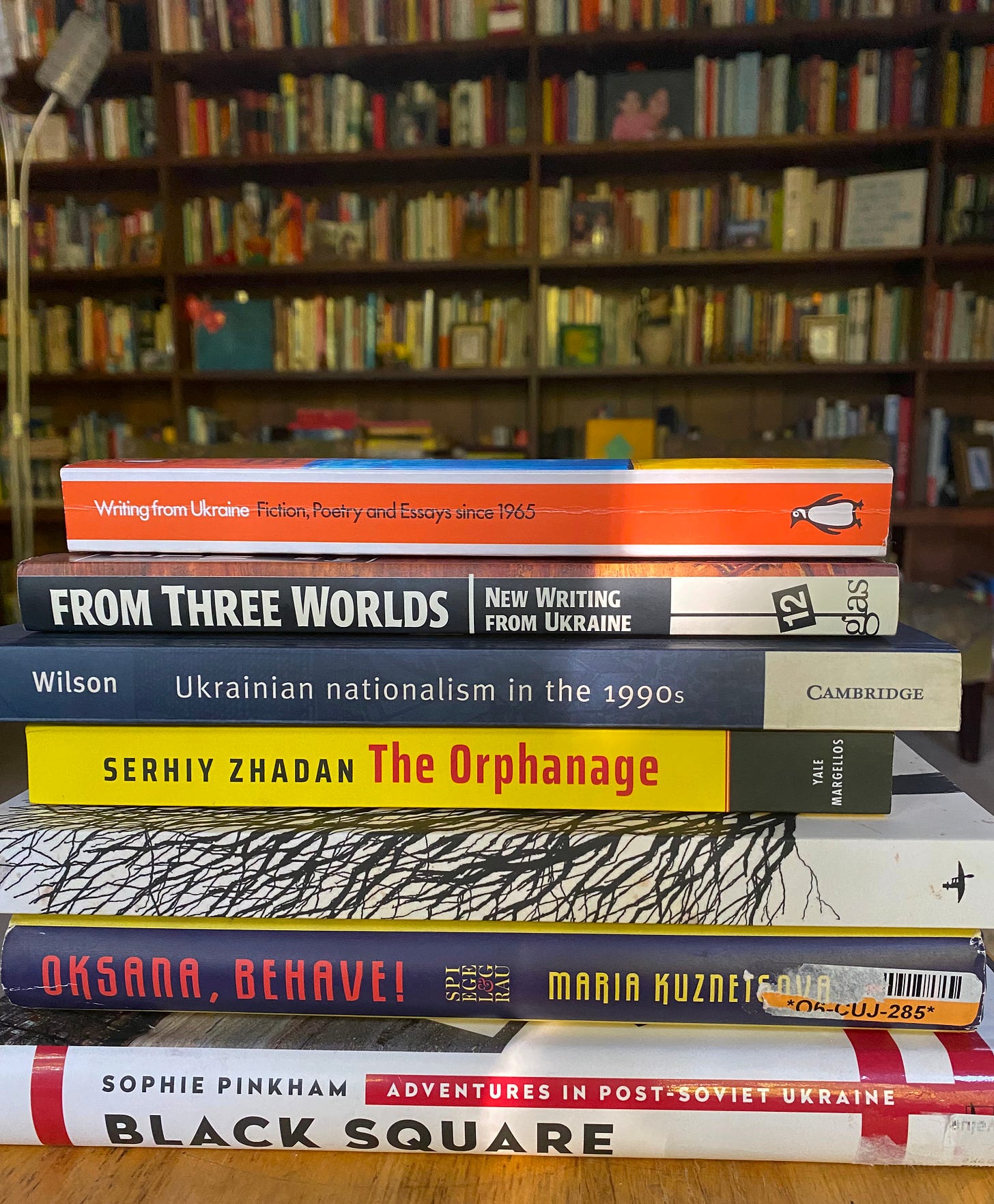I am always amazed when YouTube’s algorithm recommends a clip that I am already quite familiar with, and yesterday was one of those days: seeing my talented friend, Kostya, being recommended back to me. While replaying the clip, I realized I missed some interesting things being said in the chatter between songs on that precise evening. Listen closely to time stamp from 3:14 to 4:40.
Looking to see what I can find out about the first-ever Ukrainian song Червона рута / Chervona Ruta to win Moscow TV festival’s "Pesnya-1971" (Song of the Year in USSR), I came across a clip of the exact performance in 1971 uploaded onto YouTube 17 years ago by someone with the handle Cxidnyak. It is quite a charming black-and-white video clip and it leads to another song, Vodohrai from 1972, also by Володимир Івасюк / Volodymyr Ivasiuk. One thing stands out to me immediately: the performers in 1971 are not wearing the Vyshyvanka that we’ve all come to recognize as Ukrainian cultural heritage — and the quiet and dignified symbol of Ukrainian resistance. Of course, the show was during the time of Brezhnev in the USSR and, from the conversation in our home-clip above, I understand that just winning the festival was quite a significant feat. Read more about the origins and popularity of the song here.
The second part of the short conversation is about Kvitka Cisyk who is described here as “a Ukrainian woman who changed the music world forever…[a] singer whose voice lit up every home in North America.”
In the Soviet Union, she was called “a singer from the diaspora” and was considered a fresh breath of air that people listened to despite the strictest bans. A brilliant vocalist who collaborated with Whitney Houston and Michael Jackson, she was the voice of Ford, McDonald’s, and Coca-Cola.
Cisyk used her extraordinary success and unique talent to popularize Ukrainian culture worldwide.
One of the secrets of Kvitka’s popularity is the combination of American and Ukrainian cultures [and musical styles and singing techniques]. The singer was born in 1953 in New York in a family of Lviv intellectuals who fled from Soviet rule at the end of World War II along with thousands of other refugees. …
… Cisyk has become one of America’s most famous commercial jingles singers. In particular, her voice brightened commercials for the US Army, American Airlines, Coca-Cola, Mcdonald’s, and AT&T. The “Have You Driven a Ford Lately,” which the singer recorded for Ford Motor Company, broke all records – it played more than 22 billion times!
— Ukraine and the world celebrate the 70th anniversary of Kvitka Cisyk’s birth, April 4, 2023, Ukrainian World Congress.
Cisyk died on March 29, 1998, six days before her 45th birthday, from breast cancer.
***
And in the process of writing the above section, I found an excellent detour here.
The similarities between the family history, heritage and upbringing of Kvitka Cisyk and Maria Sonevytsky, briefly shared in the presentation above, are strikingly similar.
A confession about a small but significant growth in my personal understanding: I wasn’t completely aware of the difference between nationalism and sovereignty, and especially so in the Ukrainian context, until I heard Maria Sonevytsky carefully and respectfully explain it in the presentation above (from time stamp 33:44 to 34:40).
A small backstory: Y who is a Ukrainian scholar in the area of human rights got a little upset when, about 2 years ago, she had come to my home for the first time. I was excitedly showing her my recent purchases — books on Ukraine — that were delivered by mail that week (as seen in the photograph below). It was Wilson’s Ukrainian nationalism in the 1990s by Cambridge Press that seemed to upset her. Not knowing me well enough (but knowing I am a faculty member in the Sciences and not the Humanities or Arts), Y turned to discuss the book and its title and its author (I could understand that much) with the other Ukrainians who were visiting. I didn’t press. The moment passed and the rest of the evening was a normal dinner amidst introductions and promises of new friendships. I hadn’t read the book yet (and I must confess that I am quite wary of really getting into the book since Y’s polite distress) and so I was unsure what it was that made her uncomfortable. I have bridged the gap in my knowledge quite a bit since, in the ensuing months. Now, as I hear what Maria Sonevytsky has to say, while distinguishing briefly between sovereignty and nationalism in the Ukrainian (musical) context, it makes so much more sense. But of course! A perfect, quick, light-bulb moment!
…Ukrainian nationalism has been so overdetermined by outsiders, especially Russia for centuries. We can see this now with Putin’s rhetorics. His claim about denazification is an extension of this. This is an extension of a Soviet campaign to equate Ukrainian demands for rights with fascism. So I am proposing instead that we think about music and sovereignty…
— Maria Sonevytsky, Songs and Sovereignty in Ukraine, March 8, 2022, University of Washington.
I hope you are able to find time to listen to her full talk and not just the part I have focused on above.
***
This transition that I am about to make may seem abrupt and jarring, but given the urgency and the enormity of the stakes we will all be facing in about 2 weeks time, I am inserting this link from Prof Timothy Snyder responding to the question, Can fascism be American? The clip is less than 6 mins long. Please arm yourself with information, knowledge, and critical thinking and, if you have the right to vote, vote on behalf of all the people everywhere who will bear the brunt of the 2024 American Vote.
Thank you for reading.





